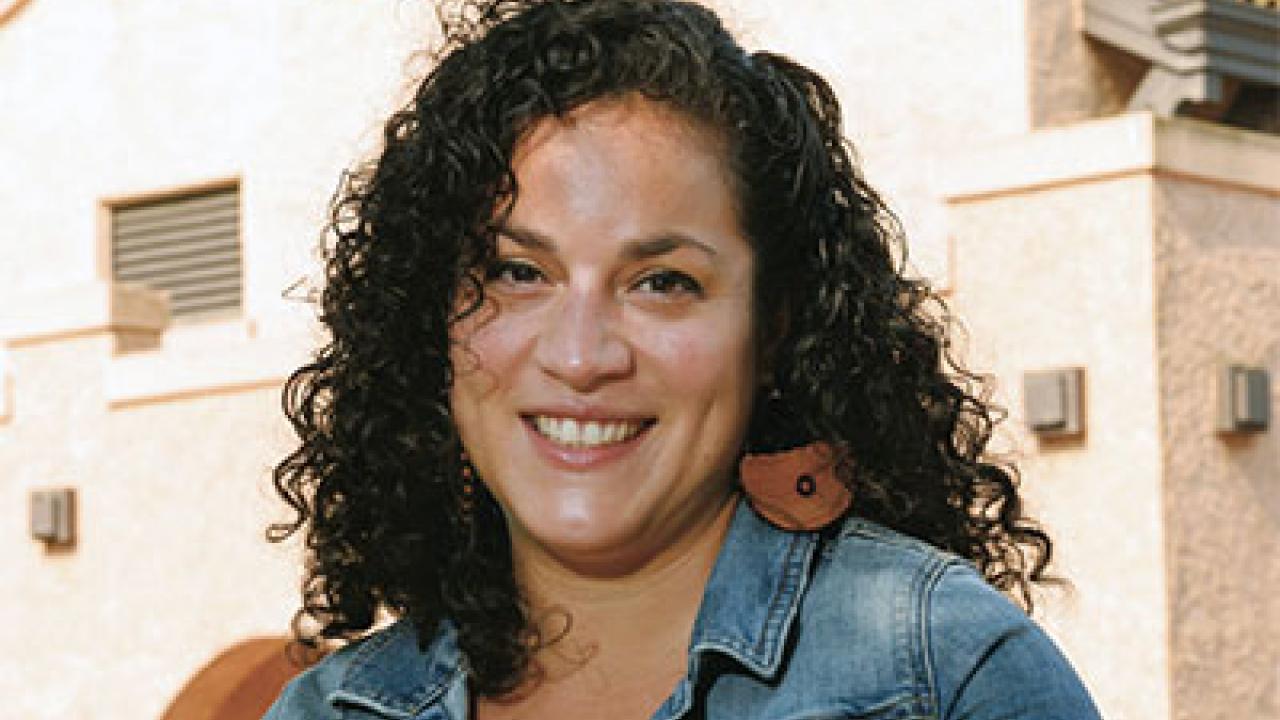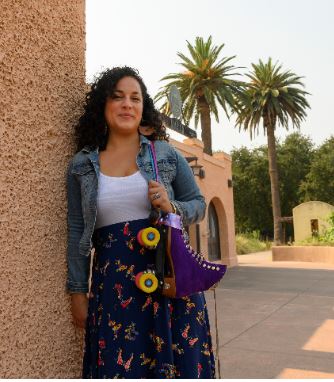
Shining the Spotlight on UC Davis Transportation Student Sequoia Erasmus
Sequoia Erasmus is a dual master’s student at UC Davis, enrolled in both Community Development and Transportation Technology and Policy programs; she expects to earn these degrees in Spring and Summer 2021, respectively. Her specialization is interdisciplinary; Sequoia has a certificate in landscape architecture and environmental design and focuses her studies on transportation equity and mobility justice.
Sequoia has spent the past 18 months working with Dr. Sarah McCullough, Associate Director of the Feminist Research Institute at UC Davis, on a research project assessing equity in the transportation industry. Interviewing non-white professionals in the transportation industry, this research interrogates the impact of recent diversity and equity initiatives and asks how organizations could modify these initiatives to promote better outcomes. Sequoia shares that she and Dr. McCullough approach these issues “with a feminist view” and “with an intersectional focus,” incorporating gender, race, and class-based perspectives. Sequoia added that the research intends to move "beyond performative allyship [towards redistributing] power in fundamental levels within organizations and institutions.”

At UC Davis, in addition to her studies and research, Sequoia co-founded the Mobility Justice Working Group, an association dedicated to the “three revolutions” in transportation: automation, shared mobility, and electrification, implemented to combat environmental and social threats. Sequoia explained that the effort began as a reading group to examine these ideas, centered on equity. With faculty and research directors' support, the reading group became an official university organization, working to bring awareness to these critical issues, emphasizing race and class. Sequoia hopes the group will continue to provide a space where faculty and students can come together and learn as colleagues and peers.
Sequoia notes that her involvement and passion for mobility justice stems from her experience working in public health, where she recognized transportation’s significant role in empowering communities. In 2014, she worked as Program Coordinator at Contra Costa Health Services, focusing on Safe Routes to School, a job requiring creative community organizing strategies to improve street safety in north Richmond, CA. While there, Sequoia recognized the importance of establishing connections between typically disparate institutions and policy disciplines, such as public health and transportation infrastructure.
In the final year of her master’s studies, Sequoia hopes to bridge the gap between community and academic spaces committed to justice and equity, with UC Davis as an “equity hub,” creating institutional pathways for non-white communities to share their perspectives. For new and continuing students, Sequoia advises that they remember the human element in all policy issues and remain open to new possibilities as opportunities can appear unexpectedly.
Upon graduation, she hopes to be more directly involved in transportation policy and advocacy work at the state or federal level. “It is important to be constantly wanting to fix how things are run, so our future, in transportation or in general, can be better,” says Sequoia.
This article was originally featured in the University of Southern California and California State University, Long Beach's METRANS Transportation Center's newsletter and authored by Esmeralda Yzguerra, a second-year Bachelor of Philosophy, Politics and Law student at the USC Dornsife College of Letters, Arts and Sciences. She works as a staff writer for the METRANS student team.
